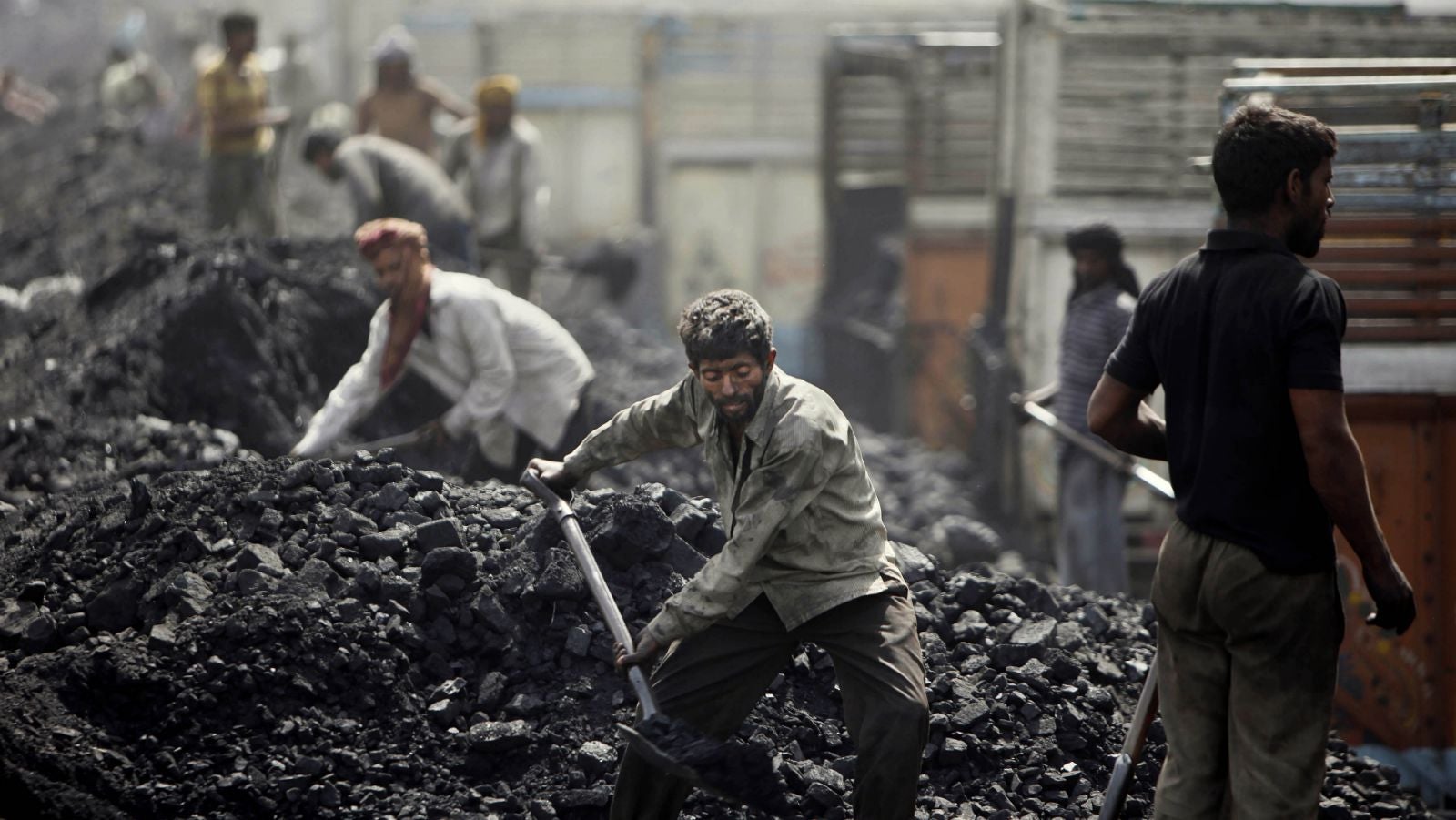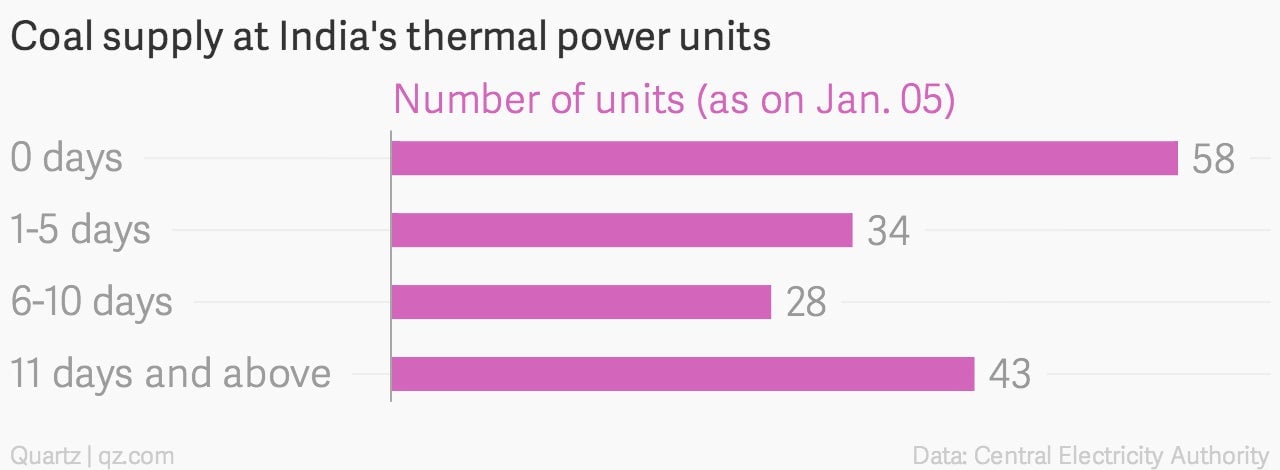India’s coal strike has cut production by half—and may cause blackouts soon
Update (Jan. 7): The coal workers’ union has called off the strike in the middle of its second day after an agreement was reached during a six-hour meeting between union leaders and India’s coal minister, Piyush Goyal.


Update (Jan. 7): The coal workers’ union has called off the strike in the middle of its second day after an agreement was reached during a six-hour meeting between union leaders and India’s coal minister, Piyush Goyal.
– – – – – –
“It is time for coal workers to do or die,” a veteran union leader declared on Jan. 6, as some 500,000 Indian coal workers launched a massive, five-day strike that has already cut coal production by more than half—and pushed India’s power sector to the brink of a crisis.
On the first day of the strike, production and dispatches at Coal India Limited (CIL)—the state-run mining company that supplies about 80% of India’s total coal requirement—fell by about 60%, a company official tells Quartz, with operations stopped at more than half of the miner’s production units.
Unless the government and leaders from the five different trade unions—who have come together in a rare show of unity—can hammer out a solution quickly, the impact of the strike could include power cuts and blackouts for Indian homes and businesses. It could also deal a heavy blow to prime minister Narendra Modi’s push to attract more global manufacturing companies to set up shop in India.
Fifty-eight thermal power production units had zero days worth of coal stockpiled as of Jan. 5, according to India’s Central Electricity Authority (pdf), while 34 plants had less than five days worth of coal.

The strike, which the unions are calling the biggest industrial action in India since the 1974, was triggered by the Modi government’s push to dilute its stake in CIL in order to restructure the company and allow private companies into commercial coal mining. CIL has enjoyed a near-monopoly in India since the coal sector was nationalized in the 1970s.
“The new government is changing the established order in the country and it is but natural that monoliths such as railways and Coal India see structural changes in their functioning with more accountability, private capital and partnerships,” Vinayak Chatterjee, chairman of Feedback Infrastructure Services, tells Quartz.
On Tuesday, union leaders held negotiations with coal secretary Anil Swarup to resolve the crisis, but the talks eventually collapsed. On Wednesday, union representatives are expected to meet coal and power minister Piyush Goyal to seek a solution, and there have also been calls for the prime minister to intervene.
“The ball is in the government’s court now,” trade union leader SQ Zama told the Mint newspaper, “and if they don’t start a dialogue with us by today, we will announce extending the strike to 10 days and prepare ourselves for a prolonged movement.”
It’s not that the Modi government, or Coal India, didn’t see this coming. The unions have been threatening to go on strike since the middle of December. But perhaps the government drew confidence from the fact that it convinced the same unions to call off a similar protest in November 2014.
This time, however, it seems that the unions have forced the government to walk on some uncomfortably hot coals.